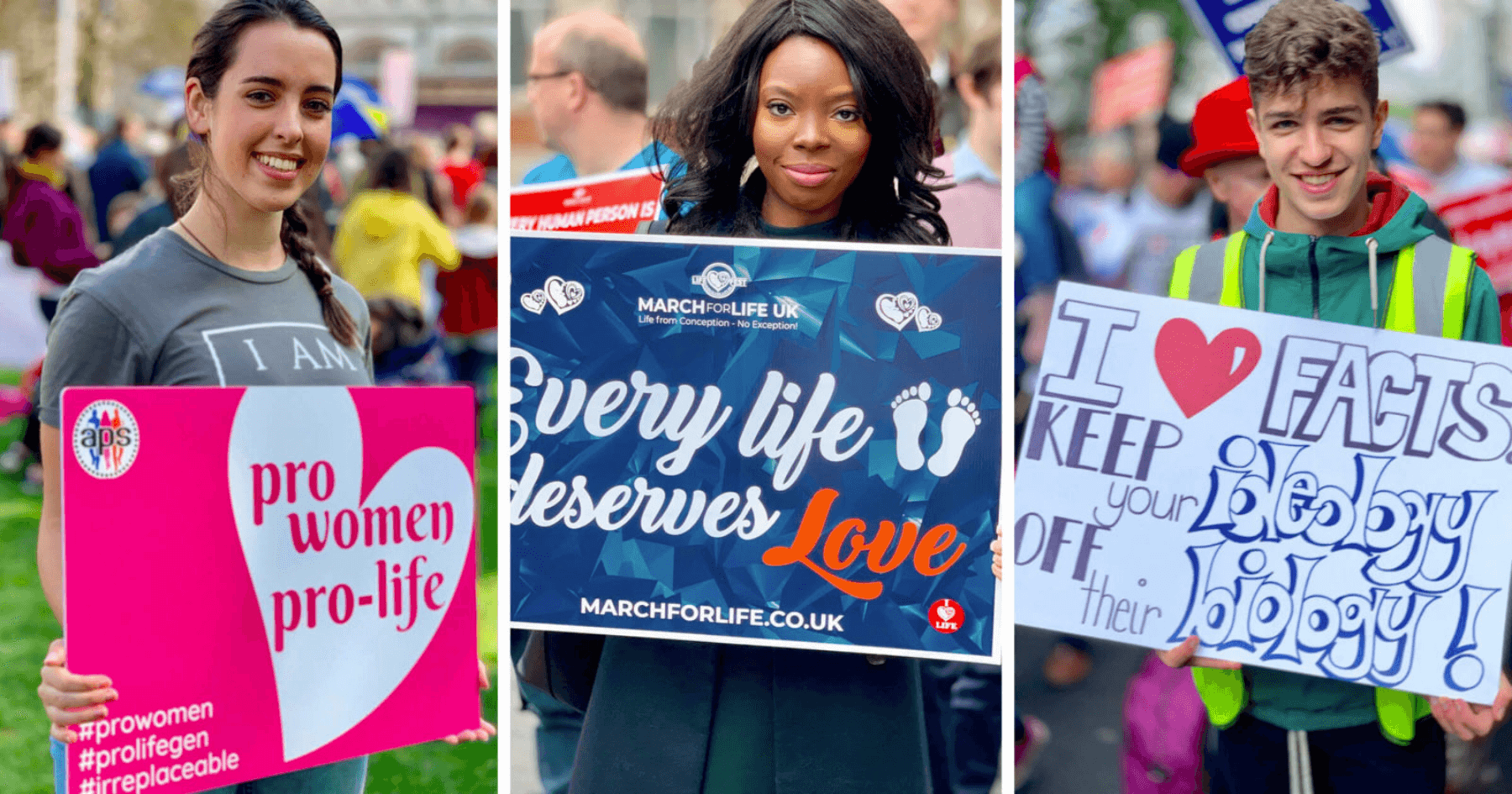Thousands are expected to join the first in-person March for Life since May 2019.
Thousands took part in March for Life UK’s online Lifestream 21 event last June.
In 2019, almost 5,000 people gathered outside the UK Parliament in London.
However, in response to the government restrictions relating to the coronavirus pandemic, last year’s event was held virtually.
This year’s march will be held in person in London.
‘LifeFest 21’ will take place from 10:00 until 13:00 inside the Emmanuel Centre in Westminster. The event will include testimonies, live Q&As, and workshops from leading pro-life speakers as well as short films, music, and much more.
The march itself will begin from behind The Emmanuel Centre at 13:30 and finish in Parliament Square, where there will be a stage set up for public speeches and testimonies.
For full details of the event, including details of buses travelling from across the UK, please see the March for Life UK website or visit their Facebook page.
Record numbers attend pro-life marches
Before COVID-19 caused many parts of the world to go into ‘lockdown’, pro-life demonstrations were seeing record attendance numbers.
Earlier in 2020, hundreds of thousands of people attended the US March for Life, a record-breaking 9,000 people attended the March for Life in Chicago, Illinois, and over 8,000 people gathered for the Celebrate Life rally in Denver, Colorado carrying signs that read, “Civil rights begin in the womb” and “I am the pro-life generation”.
In 2019, over 50,000 Slovakians called on the country’s leaders to protect unborn babies.
Pro-life demonstrations in Northern Ireland have seen numbers reach over 20,000 people, while over 11,000 marched for life in the Netherlands, and over 2,000 people attended New Zealand’s March for Life.
As some COVID-19 restrictions have been lifted in certain areas, there have been many well-attended pro-life events.
In May, thousands of pro-life activists took to the streets of Rome for the 10th Marcia per la Vita (March for Life), with many more watching via livestream.
During the same month, thousands of pro-lifers rallied in the Croatian capital of Zagreb ahead of local and mayoral elections.
Luka Hudincec, one of the rally’s organisers, told reporters: “It’s our duty to advocate for protection of every human life, including unborn children”. He also emphasised that the march sought to demonstrate on behalf of the elderly against possible euthanasia.
Another Hod Za Život (walk for life) also took place in the southern town of Imotski on the same day – the first time a rally of this kind was held in the town.
In March over 2,400 vehicles participated in the Dominican Republic’s “March for Life” in protest to the proposed introduction of abortion into the country.
A spokesperson for Right To Life UK, Catherine Robinson, said: “It is wonderful that we can expect so many enthusiastic pro-lifers to take to the streets at such a critical time for the UK and the world, as abortion campaigners have exploited the pandemic to introduce extreme changes to abortion provision in the UK and overseas. The pro-life movement depends on those people who are willing to publicly and courageously demonstrate their values”.












